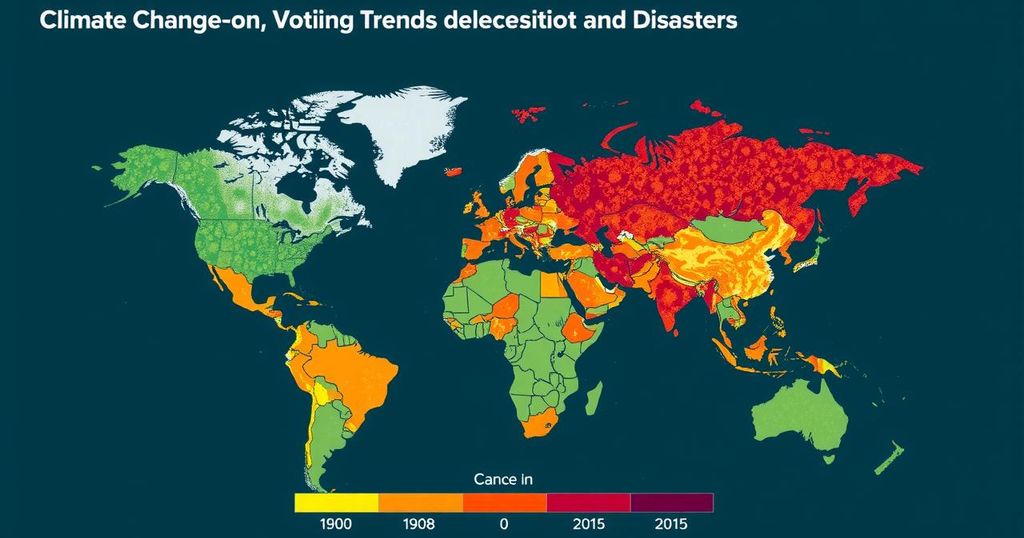Climate change
BRAZIL, CANADA, CLIMATE, CLIMATE CHANGE, COLORADO, DAVIS, ENVIRONMENT, GLOBAL WARMING, GREENHOUSE GAS EMISSIONS, HAMILTON, HELENE, IDAHO, KUNR, KUNR PUBLIC RADIO, LAWRENCE HAMILTON, MILTON, MOUNTAIN WEST, MOUNTAIN WEST NEWS BUREAU, NEVADA, NEW MEXICO, NORTH AMERICA, SOUTH, SOUTH AMERICA, SOUTHEAST, U. S, UNITED STATES, UNIVERSITY OF NEW HAMPSHIRE, WEST, WYOMING PUBLIC MEDIA
Jamal Walker
0 Comments
Climate Change Awareness Lacks Electoral Influence, Research Suggests
Research indicates that while climate change is intensifying natural disasters across the U.S., it does not significantly influence voter behavior. Lawrence Hamilton notes that increasing misinformation and the connection between political identity and climate skepticism hinder shifts in voting patterns, particularly among older voters. However, younger generations display more concern and may drive future changes in electoral impact regarding climate issues.
Climate change is increasingly exacerbating natural disasters in the United States, with wildfires in the West intensifying, hurricanes in the South becoming more severe, and temperatures rising nationally. Despite these pressing environmental issues, research indicates that discussions surrounding climate change do not significantly influence voter behavior during elections, as examined by Lawrence Hamilton, a researcher at the University of New Hampshire. Hamilton notes that while awareness of climate change was rising steadily, this trend slowed following the pandemic as the spread of misinformation about government and scientific matters surged. He posits that such misinformation is a primary factor preventing the association of climate-related disasters, like Hurricanes Helene and Milton or the Davis Fire in Nevada, with shifts in voter preferences. Moreover, Hamilton asserts that voting behavior has become deeply linked to identity, particularly among individuals aged 30 and older. He explains, “There is this connection between certain positions, such as rejecting science on climate change, and your personal, deep identity. And once that connection is made, it is really hard to uncouple.” In contrast, younger voters show a greater propensity to acknowledge human contributions to climate change and express concern about its effects, suggesting that climate change may play a larger role in future electoral decisions, particularly in regions like the Mountain West.
The discourse surrounding climate change is critical, given its impact on various environmental phenomena. The increasing frequency and intensity of wildfires, hurricanes, and temperature anomalies highlight the urgency of understanding public perception and engagement with climate issues. Researchers such as Lawrence Hamilton study the dynamics between climate change recognition and political behavior, especially in the context of rising misinformation and deeply entrenched voter identities, which can hinder constructive dialogue and policy influence based on scientific evidence.
In summary, despite the undeniable connection between climate change and the increasing severity of natural disasters, this issue has failed to significantly alter voting patterns in the U.S. This phenomenon can be attributed to the proliferation of misinformation and the strong ties between political identities and climate-related positions. However, there is potential for younger generations to shift this trend, as they show greater concern for climate change and its consequences. Thus, climate change may eventually become a more potent issue in future elections.
Original Source: www.upr.org




Post Comment